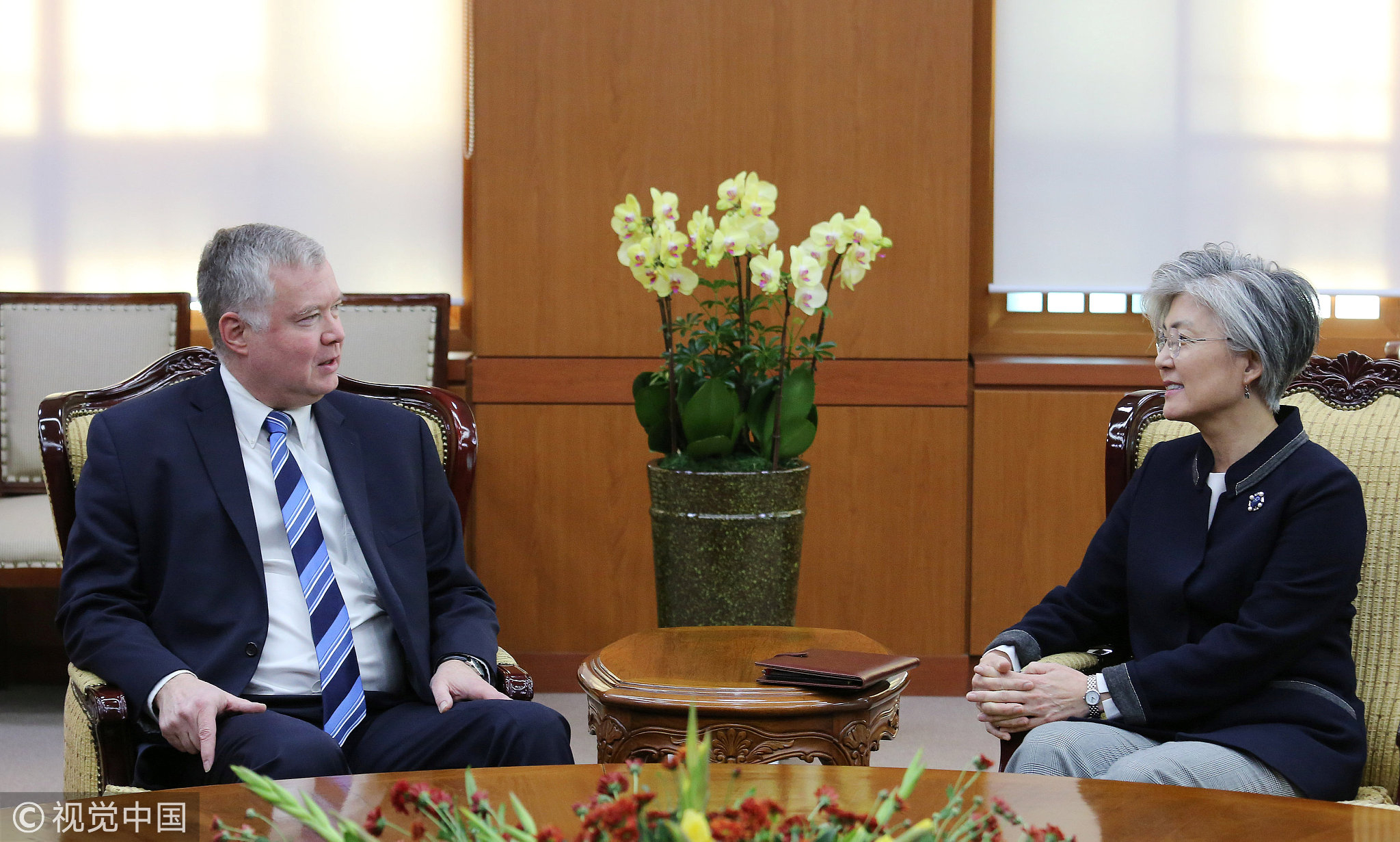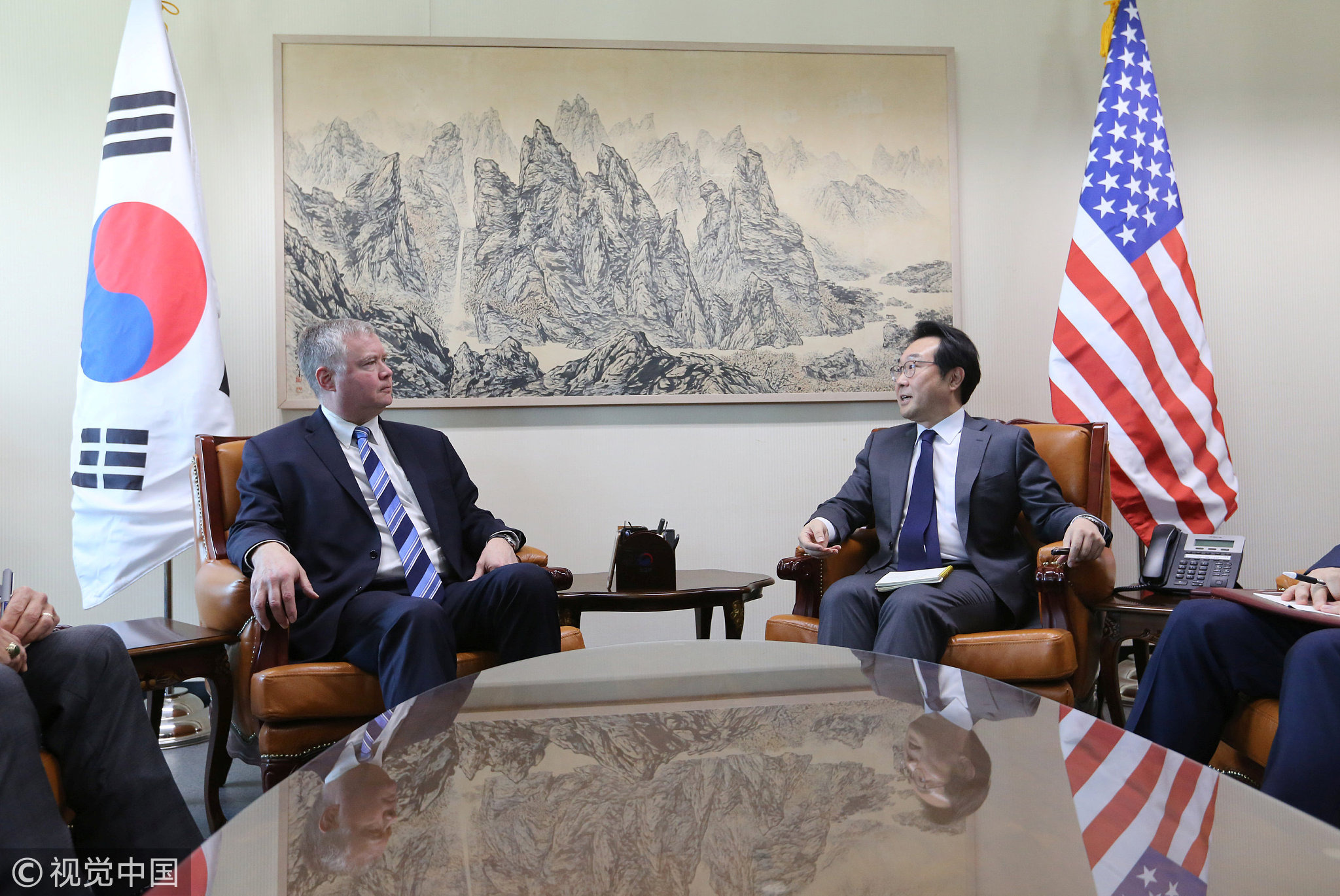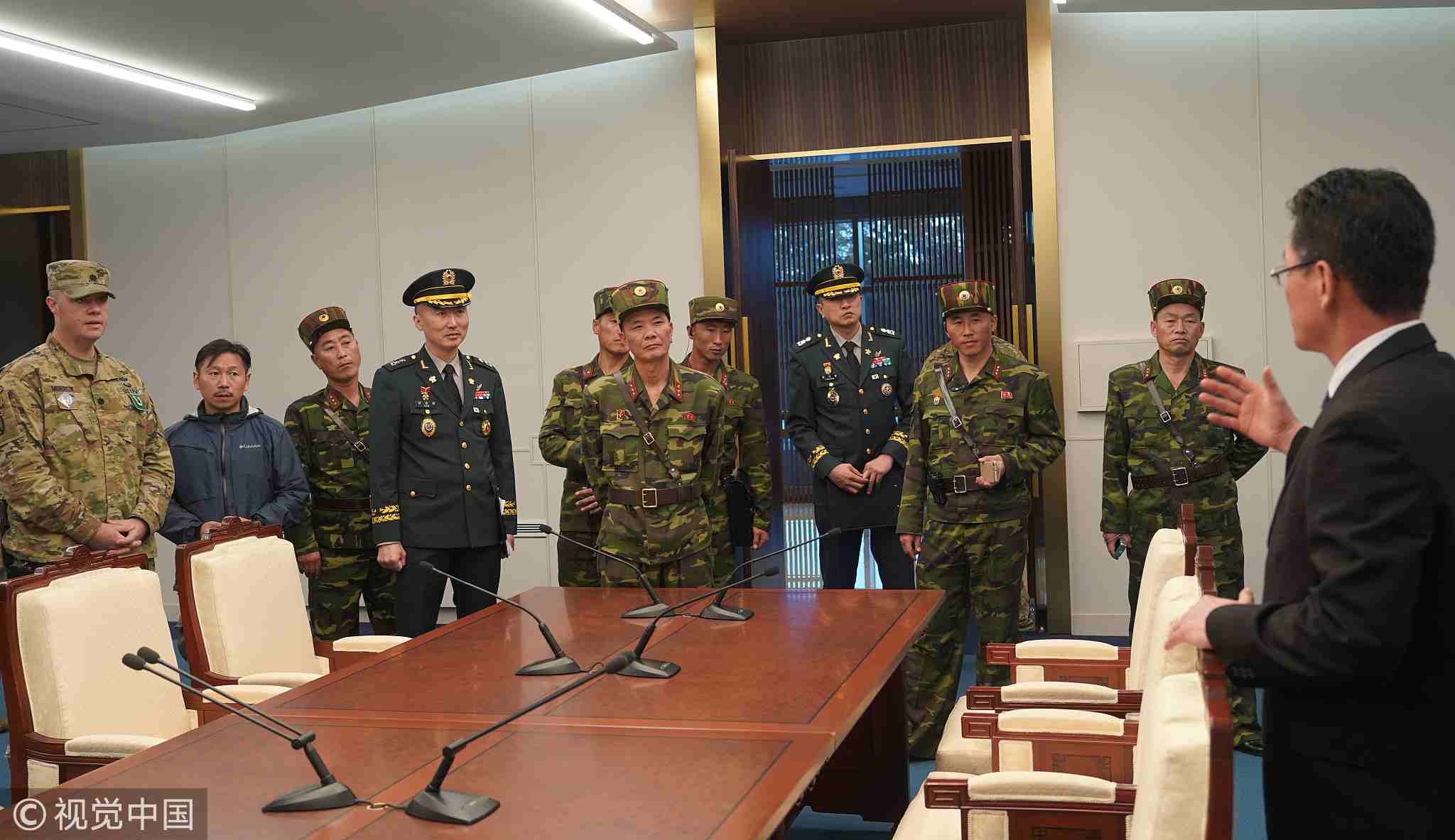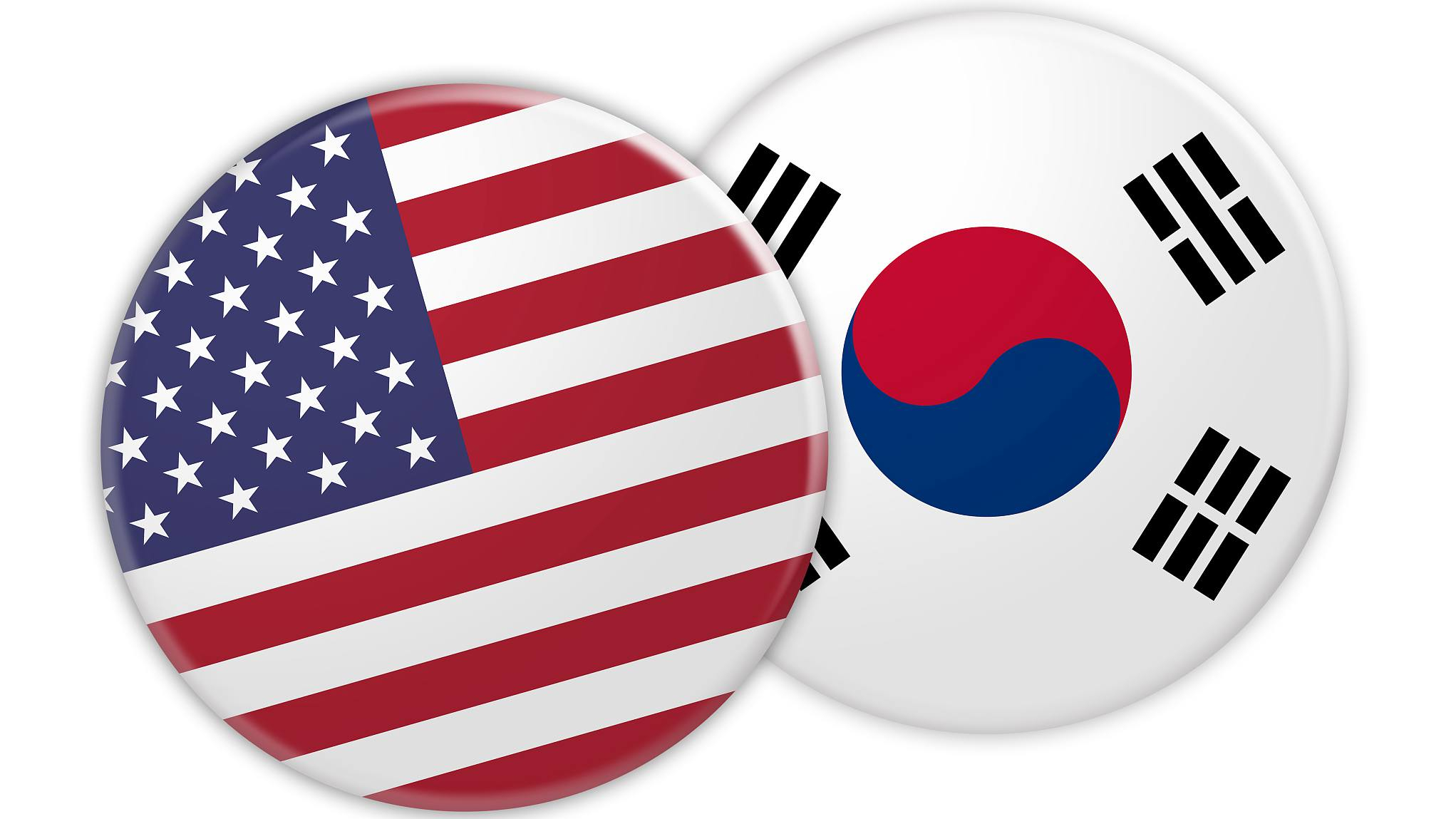Editor's Note: Tom Fowdy is a UK-based political analyst. The article reflects the author's views, and not necessarily those of CGTN.
On October 30 the United States and the Republic of Korea (ROK) announced the creation of a “working group” in order to enhance coordination on issues pertaining to the Democratic People's Republic of Korea (DPRK) nuclear issue, as announced by the state department.
The group, which will be led by US special representative Stephen Biegun, aims to create a more synchronized response on matters such as sanctions and it comes in the context of a growing divergence between the two countries on how to handle the issue, with disagreements emerging in public.

ROK Foreign Minister Kang Kyung-wha talks to Stephen Biegun, US special representative for the DPRK, during a meeting to discuss DPRK nuclear issues at the Foreign Ministry in Seoul, ROK, October 29, 2018. /VCG Photo.
ROK Foreign Minister Kang Kyung-wha talks to Stephen Biegun, US special representative for the DPRK, during a meeting to discuss DPRK nuclear issues at the Foreign Ministry in Seoul, ROK, October 29, 2018. /VCG Photo.
Although this kind of working group may enhance the interactions between the two nations, it will, however, not address the fundamental causes of their disagreements, which stems from the United States' refusal to make pragmatic concessions on their demands concerning denuclearisation. Such meetings can only stand to be superficial and can produce little by forcing Pyongyang's hand.
Why are the United States and the ROK publicly disagreeing over the DPRK? The answer is that they have completely different stances as to how peace ought to be established upon the Korean peninsula. The ROK, due to its geographic proximity and historical experience, recognize after decades of tensions with Pyongyang that peace must come before denuclearisation.
Success can only arrive after a long process of engagement and building trust and confidence, as the history of the peninsula shows that talk of the DPRK willing handing over its nuclear program is unrealistic.

Stephen Biegun talks to Lee Do-hoon, South Korea's Special Representative for Korean Peninsula Peace and Security Affairs, during a meeting to discuss DPRK nuclear issues at the Foreign Ministry in Seoul, ROK, October 29, 2018. /VCG Photo.
Stephen Biegun talks to Lee Do-hoon, South Korea's Special Representative for Korean Peninsula Peace and Security Affairs, during a meeting to discuss DPRK nuclear issues at the Foreign Ministry in Seoul, ROK, October 29, 2018. /VCG Photo.
As a result, the process should involve some compromise, with Moon Jae-in lobbying the international community to change their mind on sanctions over the DPRK.
The US position, however, is enormously different. Denuclearisation must come before everything and anything, a demand that the Trump administration has refused to compromise on so far.
The United States is determined to uphold sanctions until the DPRK denuclearises, as well refusing to formally end the Korean war, despite obvious evidence that holding such a position will not work.
The unchanging position has its roots in a belief among US policymakers that Pyongyang will use any alleviation from pressure to cheat the system, and the Trump administration believes that sanctions will force Pyongyang to capitulate to their terms.

The DPRK, the United Nations and the United Nations Command executed a joint inspection of the "armed out of the Panmunjom Joint Security Area (JSA)" at the Panmunjom, October 28, 2018. /VCG Photo.
The DPRK, the United Nations and the United Nations Command executed a joint inspection of the "armed out of the Panmunjom Joint Security Area (JSA)" at the Panmunjom, October 28, 2018. /VCG Photo.
However, this isn't happening. The refusal to shift on sanctions or any kind of serious military concessions has created a stall in US-DPRK talks which has persisted since the Singapore summit in the summer, as well as the growing disagreement with Seoul.
It shows no sign of stopping despite the surface rhetoric of “close coordination” and an “ironclad” alliance. After all, in the past month alone, ROK's opening of a liaison office in Kaesong has angered the United States, as did the bid to reconnect the peninsula's railroads.
The treasury department further threatened local banks with unilateral measures if they dared cross the line of sanctions. Despite growing calls from many parties around the world, the US is not budging and progress is at risk.
As a result, the new “working group” on the DPRK between the two countries is not going to deliver a great deal results wise. As the national interest of both parties continues to stress increasingly divergent resolutions to the crisis, there must be a pragmatic and reasonable compromise if any progress is to be made.
However, with Washington stubbornly holding all the cards on sanctions, it is up to them to give space for the two Koreas to act, lest the peace process fails altogether. Seoul has made many compromises and adaptations towards the US position since 2017, but the effort must be mutual.
Yet, even if the ROK were to coordinate more firmly and without question to Washington's demands, little can be achieved through the group's work. Because regardless, Pyongyang not going to budge in any way on denuclearisation unless some kind of meaningful concessions are made to build confidence and trust. If not, then no “working group” can prevent Washington's self-imposed alienation in the process as a result of its dogmatic demands.
(If you want to contribute and have specific expertise, contact us at opinions@cgtn.com.)





